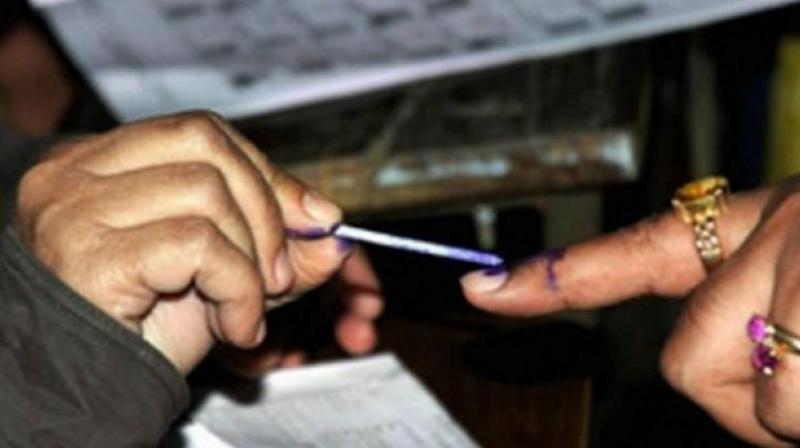Lok Sabha elections: Two-pronged plan to take on the BJP

Hyderabad: Opposition parties at national level are adopting a new strategy to defeat the Bharatiya Janata Party in the forthcoming Lok Sabha elections.
According to local political equations, they want to have two types of alliances, pre-poll and post-poll.
The aim of the pre-poll alliance is to defeat the BJP, and of the post-poll alliance is to see that the BJP does not get to form the government with the support of other parties.
Though the main target of all Opposition parties is to defeat the BJP, groupings within the Opposition have different agenda.
One group is anti-BJP and anti-Congress, another is anti-BJP and pro-Congress, and the third will take a decision according to the political situation that prevails post-polls.
In the proposed Mahagathbandan, or grand alliance, there are more regional parties than national parties.
Regional parties are confined to one or two states, and it is not possible to have an alliance with other parties for the elections.
For example, the Telangana Rashtra Samiti in Telangana state and YSR Congress in AP are against both the BJP and the Congress.
And for both, the Congress is the main rival, so their first preference is an anti-BJP and anti-Congress government at the Centre.
Neither the TRS nor the YSRC will support the Congress at any price at the national level. These two parties cannot have any alliances in the forthcoming Lok Sabha elections as they are confined to their own states, however, these two parties will have a post poll alliance.
For the ruling Telugu Desam (TD) in Andhra Pradesh, the BJP is the main rival at national level. As of now, the TD’s stand is pro Congress at national level and it will not support the BJP at national level.
In Telangana, the Majlis Ittihadul Muslimeen (MIM), which is friendly to the TRS, is also anti BJP and anti Congress.
Meanwhile, in Uttar Pradesh, the Samajwadi Party headed by former Chief Minister Akhilesh Yadav is anti BJP and pro Congress and the Bahujana Samaj Party (BSP), headed by former Chief Minister Mayawati, is anti BJP and anti Congress. But these two parties have declared they are in alliance in Uttar Pradesh in the parliamentary elections. Akhilesh Yadav may support anti BJP and anti Congress forces to form the government at the centre.
The stand of the president of the Biju Janata Dal (BJD) in Odisha, Chief Minister Naveen Patnaik, is to maintain an equal distance from the BJP and the Congress.
Telugu Desam leaders believe that the BJD will not support the BJP at national level in the post poll scenario, but it will support the Congress if necessary.
The stand of the Dravida Munnetra Kazhagam (DMK) of Tamil Nadu and the Trinamool Congress in West Bengal is also anti BJP and pro Congress. The Trinamool Congress also may support anti
BJP and anti Congress forces at the Centre if necessary. Janata Dal leader and senior most politician, Sharad Yadav, who is trying to unite opposition parties against the BJP, says there will be two kinds of alliances - total unity and possible unity - across states to reach the Opposition's goal of removing the Narendra Modi government at the Centre.
In an interview to a news agency, Sharad Yadav said, “The effort is for total unity, but if that is not possible, then there will be possible unity.”
Meanwhile, Samajwadi Party chief Akhilesh Yadav, defending his party’s alliance with the BSP and to keep the Congress out of the alliance, said, “The SP and BSP in Uttar Pradesh have taken a decision to correct the poll arithmetic in the state with the aim of defeating the BJP in the 2019 Lok Sabha elections.”

